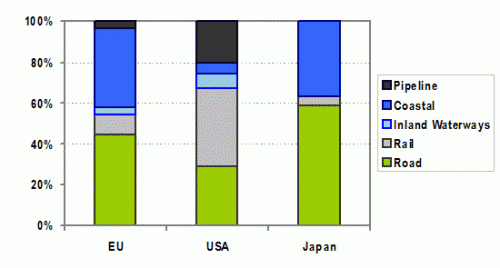Transparent and Visible Cross-Subsidy: Unethical; Invisible Legally-Mandated Cross-Subsidy at the Behest of a Special Interest: A-OK
From Engadget, apparently the EU has banned retailers for adding a surcharge on credit card purchases. Since it is an absolute fact that credit card sales cost retailers at least 3% more (due to merchant processing fees) than cash sales, I likely would have written about this story something like "EU knuckles under special interest lobbying from credit card processors and forces non-customers (ie those paying in cash) to subsidize credit card purchases." Of course, given the consistent and predictable economic ignorance of Engadget, that is not how the story actually was written:
Thanks to new EU regulations, you won't have to put up with irritating card surcharges for much longer. Unfortunately, minimum card spends you come across in small shops and such will stick around, but from January 13th, the Payment Services Directive comes into play. This stops retailers from charging you more for, say, using a credit card than a debit card, or generally just passing the transaction fee onto the customer. It won't, however, make your Just Eat delivery any cheaper. That's because yesterday, ahead of the new EU rules being implemented, Just Eat did away with its 50p fee for paying by card, and instead created a new 50p "service charge" that applies to all orders.
What's particularly cheeky is pay-by-cash customers now also have to fish between the sofa cushions for an extra coin -- a move Just Eat calls "fairness for all" (lol) -- meaning it's making even more moolah while sticking a middle finger up to the spirit of the EU directive. Just Eat told the BBC it had previously thought about tweaking charges, while also totally confessing that "the change to legislation did play a part in prompting the review." A spokesperson also said, predictably, that it'll enable the company to keep providing its stellar services: "The 50p charge simply means that along with our restaurant partners, we can continue to deliver the best possible takeaway experience."
The law essentially forces cash customers to subsidize credit card customers. I know what retail profits look like (think small single digits) and the lost surcharge is not coming out of profits, it is going to be covered by establishments in generally higher prices paid by everyone, including cash customers. In my mind, this retailer is a hero, by actually making this legally-mandated cross subsidy transparent.

